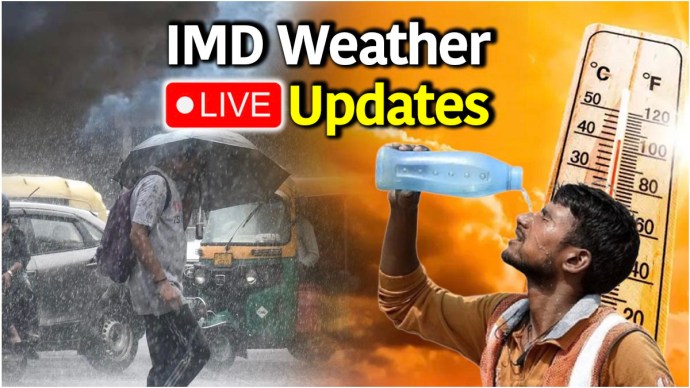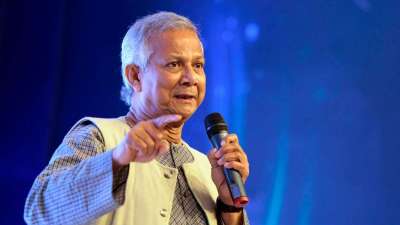Bharat Ek Soch: A wave of anger swept across the nation after the recent terrorist attack in Pahalgam’s Baisaran Valley on April 22, 2025, that claimed 26 innocent lives. From Kargil in the north to Kanyakumari in the south, civilians raised serious questions about the security lapse that may have allowed the terrorists to take advantage of and attack the tourists. As we continue to process the situation, heightened tensions are seen along the LoC. Meanwhile, there is also a feeling of an impending conflict that lies ahead.
Reports have even emerged that the Pakistani Army Chief Asim Munir, along with other top generals of the country, have secretly sent their family members abroad. Amidst all this, on Thursday, Prime Minister Narendra Modi announced from the soil of Bihar that India will identify, track, and punish every terrorist, their handlers, and their backers.
Pahalgam Attack Triggers A Wave Of Questions
As the situation unfolds, a wave of questions has been triggered – How will India deal with the terrorists? What will happen to Pakistan? Will the issue be limited to diplomatic action only, or will India strike Pakistan? Did Pakistan’s decision to suspend the Shimla Agreement go against the country? Why is Pakistan’s Army Chief General Munir called the mastermind of the Pahalgam attack? What kind of advantage General Munir might have gained from the Pahalgam conspiracy? Is General Munir’s position at stake, or is he planning to orchestrate a coup in Pakistan? Amid India-Pakistan tension, which country will the three leading superpowers, America, China, and Russia, side with?
Pakistan’s Plot Exposed By Its Ministers
It is often said that a wise enemy is better than a foolish friend. Notably, Pakistan’s plot is being exposed by their top ministers themselves. Pakistan’s Deputy PM and Foreign Minister Ishaq Dar recently referred to the perpetrators of the terror attack in Pahalgam as ‘freedom fighters. Meanwhile, Pakistani Defence Minister, Khawaja Asif, said that it has been doing the West’s dirty work for decades.
Real Intent Of Pakistan Becomes Crystal Clear
The real intent of Pakistan has now become crystal clear in front of the world. Speculations are being made now regarding what consequences the rival country will pay following the attack on unarmed and innocent tourists in the Baisran Valley. Pakistan would now surely be thinking of whether India will choose a surgical strike or an air strike this time?
It should be noted that the Pakistan Army and Air Force are currently on high alert, and reports of firing along the LoC keep occurring repeatedly. Amidst all these strong statements, some defense experts argue that PoK is India’s stolen part and that the Indian army should advance beyond the Line of Control (LoC) and push Pakistan back from it. But is it possible?
Also Read: Navigating The US-China Trade War – Which Path Will India Choose? Explained
“No Fault Is Seen In The Powerful”
Notably, Russia attacked Ukraine and occupied a large part of it. On the other hand, Hamas attacked Israel in 2023, and later Israel turned Gaza into a crematorium and attacked Lebanon to wipe out Hezbollah. Similarly, America bombed Iraq and Afghanistan for about two decades. What harm could anyone dare to do to Israel and the US after all that? Today, diplomacy is progressing differently – “No fault is seen in the powerful.” Surely, Pakistan has welcomed trouble for itself by suspending the Shimla Agreement.
Shimla Agreement Already Dead
Many diplomats keep a close watch on the India-Pakistan ties, assuming that the Shimla Agreement is already dead. They have tried to take the issue of Kashmir to the international stage from time to time. However, they did not get any benefit from it. Pakistan has already crossed the ‘Lakshman Rekha’ in 1999 by sending infiltrators to Kargil to cross the LoC, and now the Pahalgam terror attack. In such a situation, the country’s decision to suspend the Shimla Agreement is unlikely to cause much difference to India’s strategy.
Indus, Chenab, Jhelum Rivers – The Lifeline Of Pakistan
Indus, Chenab, and Jhelum rivers flowing from India are, in a way, the lifeline of Pakistan. In a strong countermeasure against the country, India has suspended the Indus Waters Treaty. The trailer of devastation is sure to be seen this summer. Most importantly, today, Nuclear power Pakistan is standing at a crossroads, and its economy is on a ventilator. No one is ready to lend even a single rupee loan to the Shahbaz Sharif-led government.
While Saudi Arabia, UAE, and Indonesia consider India’s stand against terrorism as justified, countries like Turkey and Qatar appear neutral. It seems that Afghanistan may also go against Pakistan this time. On the other hand, Saudi Arabia and Iran have expressed their intention to act as mediators between India and Pakistan.
Stance Of Global Powers
The current landscape has drawn the attention of global powers. In such a situation, US President Donald Trump has sparked a wave of ripple effects, and therefore, it becomes increasingly important for America to support India. Amidst all this, China’s stance is uncertain as it has huge investments in Pakistan.
Although Russia appears to be in favour of India, it would not wish for a war to take place between India and Pakistan. As we proceed, it is important to find why General Munir plotted the terrorist attack in Pahalgam. There is also a growing scrutiny over the role of the Pakistani Army Chief over the last few months.
Option Left For Pakistani PM Shehbaz Sharif
Shahbaz Sharif is currently the Prime Minister of Pakistan. But it remains to be seen how much influence he has in contrast to General Asim Munir. These days, a picture from Pakistan has sparked significant discussions. Prime Minister Shahbaz Sharif recently held a meeting of the National Security Council in Islamabad. This comes shortly after the Cabinet Committee on Security (CCS) held a meeting in Delhi. Generally, General Munir sits in the second chair in any meeting led by Pakistan’s PM Shahbaz Sharif. However, in the meeting of the NSC, the Army Chief was seated in a third position.
Here, the question arises whether this was just a coincidence or PM Shahbaz wants to limit General Munir’s authority. Meanwhile, there are speculations that he may overthrow the Shahbaz Sharif-led Pakistani Government. In such a situation, Pakistan is facing the threat of losing Balochistan on one hand and PoK on the other.
Also Read: Bharat Ek Soch: Where Does India’s Opportunity Lie in Donald Trump’s Tariff War?











